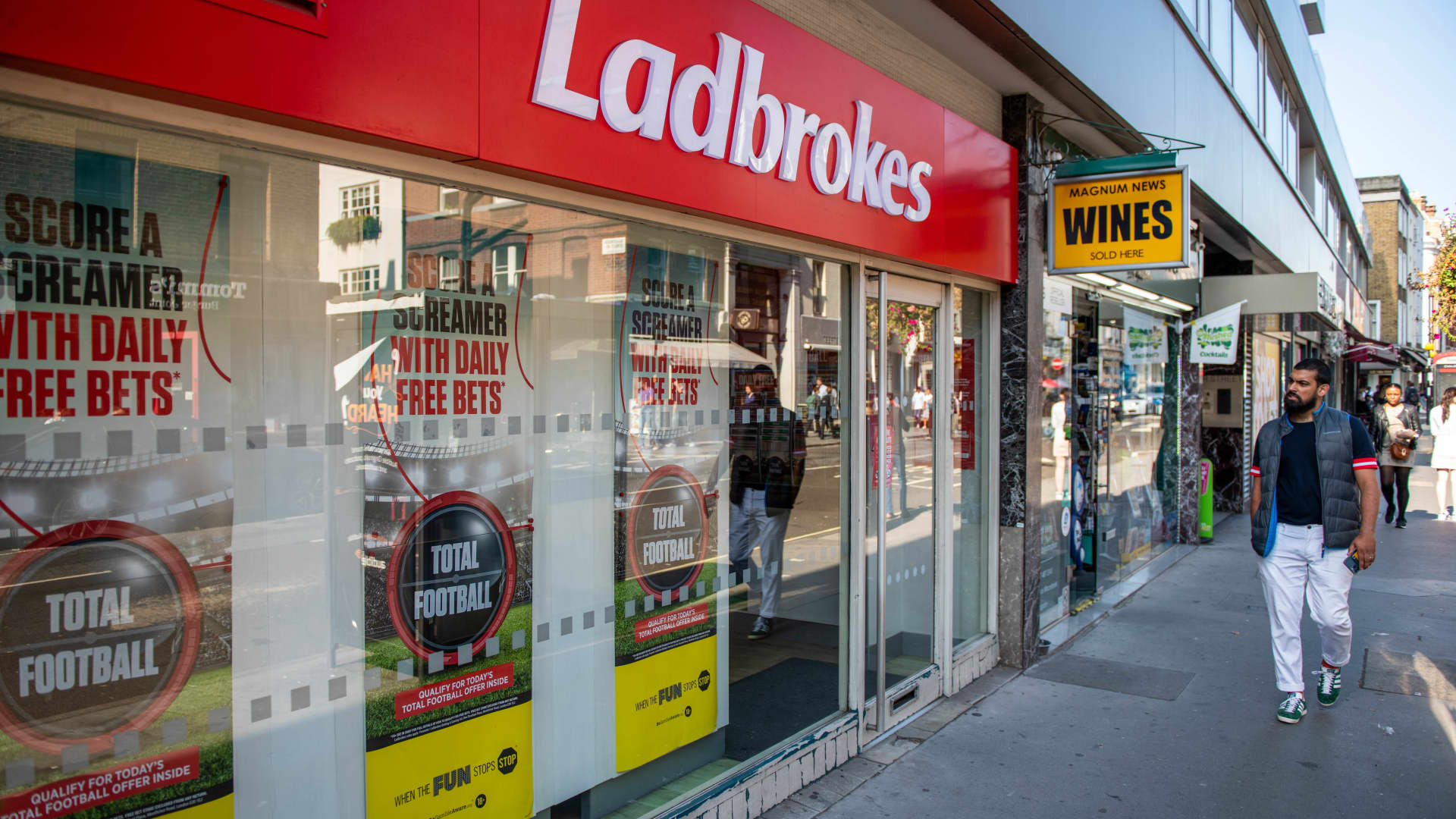
- U.K. Finance Minister Rachel Reeves is scheduled to deliver the government's budget on Wednesday, bringing an end to months of speculation about how hard Labour's measures will hit "working people" and the extent to which the government intends to borrow to support investment.
- Prime Minister Keir Starmer has warned it's time for the world's sixth-largest economy to "embrace the harsh light of fiscal reality" and run toward "tough decisions."
- Among a litany of measures designed to raise billions of pounds, Reeves is reported to be considering a sin tax raid.
Britain's Labour government appears poised to raise "sin taxes" in its highly anticipated October budget as it seeks to cash-in on lucrative industries to bolster Treasury revenues.
U.K. Finance Minister Rachel Reeves is scheduled to deliver the government's budget on Wednesday afternoon, bringing an end to months of speculation about how hard Labour's measures will hit "working people" and the extent to which the government intends to borrow to support long-term investment.
Prime Minister Keir Starmer has warned it's time for the world's sixth-largest economy to "embrace the harsh light of fiscal reality" and run toward "tough decisions" to avoid getting stuck on a downward trajectory.
The Hurricane season is on. Our meteorologists are ready. Sign up for the NBC 6 Weather newsletter to get the latest forecast in your inbox.
Among a litany of measures, including a major change to the government's fiscal rules, Reeves is reported to be considering a sin tax raid.
These levies, which are regularly hiked in government budgets, commonly refer to taxes on harmful goods such as alcohol and cigarettes, as well as the gambling sector.
Analysts say that while sin taxes will likely play a significant role in the budget by raising billions of pounds in revenue, they alone will not be able to plug what has been described as a "black hole" in the country's public finances.
Money Report
"Sin stocks are a good place to start. One would assume that they have already been taxed into oblivion but there is always the opportunity to rinse them a little bit more," Michael Field, Europe market strategist at Morningstar, told CNBC via video call.
"I think the government might view them as low-hanging fruit in terms of no-one coming to defend them, but you do have to be wary of killing the golden goose at the same time — and the ramifications for a black market if indeed the industry becomes not profitable to operate in a law-abiding manner."
What's on the table?
One of the sin industries that may be in Labour's crosshairs is the gambling sector. The Guardian reported on Oct. 11, citing unnamed sources familiar with the discussions, that the Treasury is considering fresh levies that could raise between £900 million ($1.17 billion) and £3 billion.
Shares of London-listed gambling stocks fell sharply on the news. Britain's Entain, which owns brands such as Ladbrokes and Coral, closed around 8% lower on Oct. 14, while William Hill-owner Evoke fell over 14%.
U.S.-listed Flutter, which owns Betfair and Paddy Power and has a primary listing in London, also tumbled following the report.

Separately, the Labour government is said to be contemplating a move to increase the tax on vaping products alongside an increase in tobacco duty.
The U.K. government announced last week that it intends to ban the sale of disposable vapes in England from next summer. The Department for Environment, Food and Rural Affairs said on Thursday that vape usage soared by more than 400% between 2012 and 2023, noting that 9.1% of the British public currently use these products.
Asked about the prospect of sin taxes in the budget, a Treasury spokesperson told CNBC: "We do not comment on speculation around tax changes outside of fiscal events."
Read more
Britain announces major change to fiscal rules to free up billions in spending
Britain’s Labour government to deliver debut Budget this week, settling weeks of uncertainty
Britain faces warnings of a tech exodus over tax plans ahead of high-stakes budget
Bruce Morley, economics and finance lecturer at the U.K.'s University of Bath, said sin industries were likely to be targeted in Wednesday's budget, adding that such a move would probably receive broad public support and, ultimately, raise billions in tax revenue.
The gambling sector "could potentially be a prime target," Morley said, while higher taxes on tobacco products, including vaping, would benefit both tax revenues and public health.
"At the moment, vaping only receives the standard 20% VAT rate but, unlike tobacco, no individual levy. This could change in the budget, especially following the concerns over the [effects] of vaping on the health of the young," Morley told CNBC via email.
"However, the amounts raised by taxing the sin products won't be enough to cover the amounts the government wishes to raise, so other less popular taxes will also have to rise substantially," he added.
What could it mean for stocks?
Asked how a move to target the gambling and tobacco sectors with higher taxes could impact stocks, Morningstar's Field said that some of the negativity had already been priced in to some degree, particularly given the intense speculation of what might feature in Wednesday's budget.
For tobacco giants such as Imperial Brands and British American Tobacco, Field said that the price of these stocks appeared to have been "quite beaten up relative to where we think they should be worth, but at the same time, I think the market is still a bit skeptical about the regulatory environment around vapes."

"What will likely happen is [the government] will increase the price of tobacco, possibly alcohol as well, and it's possible they could slam up the taxes, through whatever kind of backdoor, on betting. How much they want to do in a very short period of time is an open question," Field said.
"Is this a silver bullet to fix the budget deficit? Probably not. It's one part of a whole jigsaw that will eventually get them some way to where they think the budget deficit is," he added.






